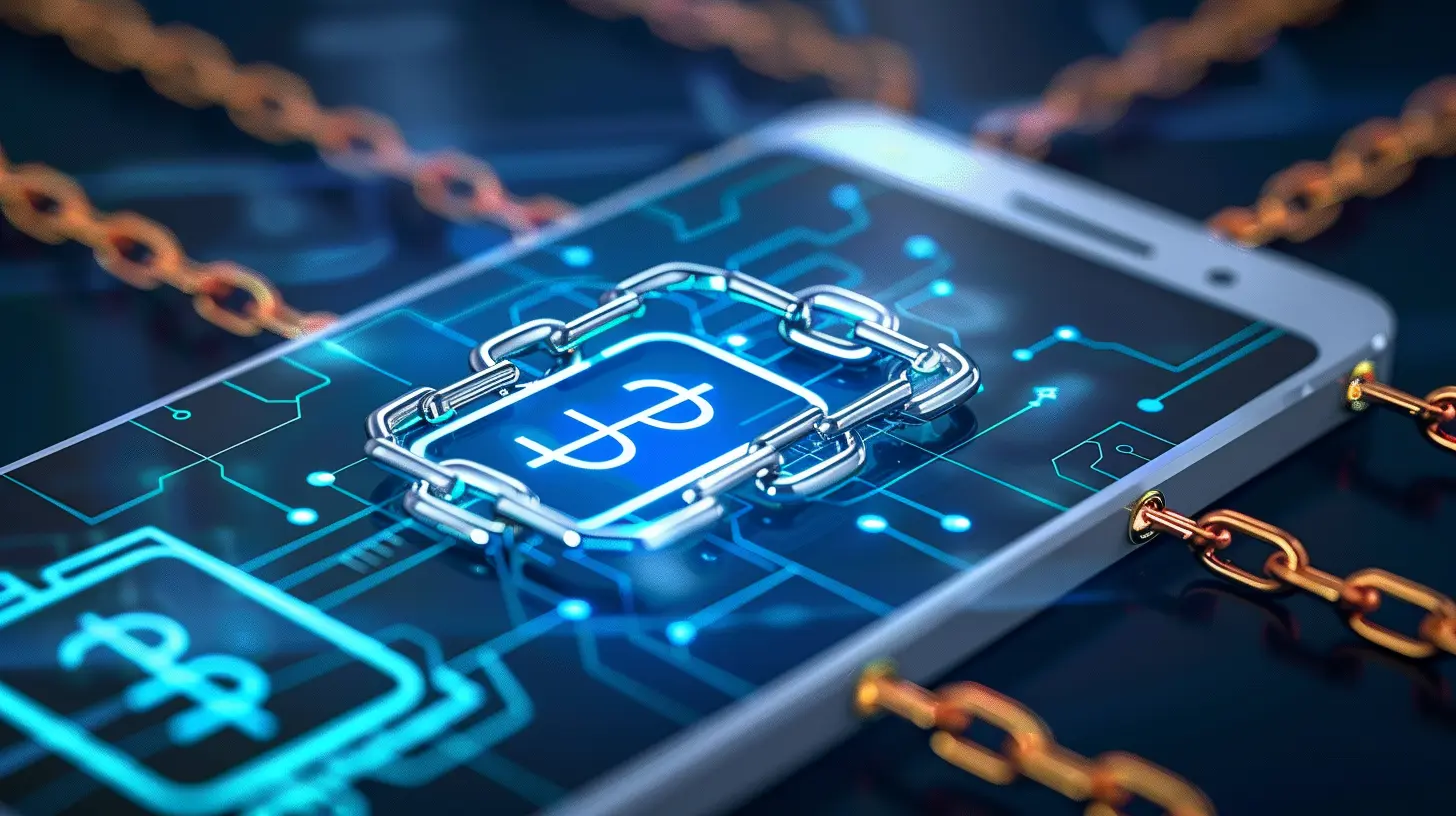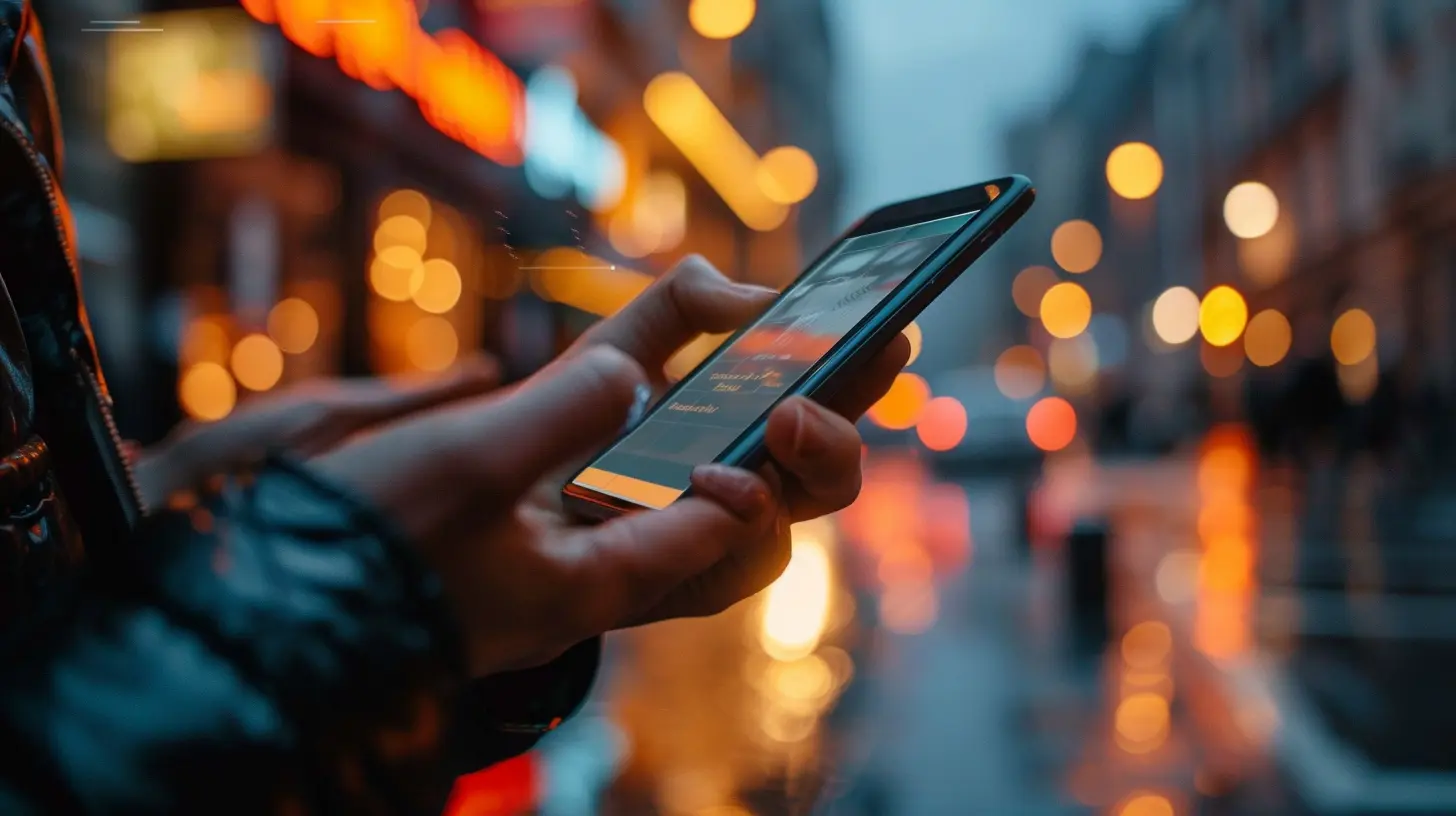The Impact of Blockchain on Mobile Security and Payments
25 July 2025
In today's digital world, mobile security and payments are more important than ever. With people using their smartphones for everything from online shopping to banking, there's a growing need to ensure these transactions are secure. Enter blockchain—a revolutionary technology that's shaking things up in the world of cybersecurity and mobile payments.
But how exactly does blockchain impact mobile security and digital transactions? And why should you care? Let’s dive in and break it down in a way that makes sense.

What Is Blockchain and Why Does It Matter?
Before we get into the nitty-gritty, let’s quickly cover what blockchain is.At its core, blockchain is a decentralized digital ledger that records transactions across multiple computers. Unlike traditional databases, which store data in one place, blockchain distributes it across a vast network. Each "block" in this chain contains data, and once added, it’s nearly impossible to alter without changing every subsequent block.
Sounds complicated? Think of it like a shared Google Doc, but instead of one person having editing control, every participant in the network verifies changes, making it highly secure and tamper-proof.
Now that we’re clear on what blockchain is, let’s explore how it's revolutionizing mobile security and payments.

How Blockchain Enhances Mobile Security
Cybersecurity is a massive concern in the mobile world. With hackers constantly trying to steal data, blockchain steps up to offer a more secure way of handling information. Here’s how:1. Decentralized Security Model
Most mobile apps and services rely on centralized servers, making them prime targets for cyberattacks. If hackers gain access to a central server, they can steal thousands or even millions of user records.Blockchain, on the other hand, operates on a decentralized network. There’s no single point of failure, making it incredibly difficult for hackers to breach the system. Even if one node (computer) is compromised, the rest of the network remains secure.
2. Immutable Transactions
Once data is recorded on a blockchain, it cannot be changed or deleted without altering the entire chain. This feature makes fraud and data tampering nearly impossible.For mobile users, this means personal information, banking details, and transaction history remain secure, reducing the risk of identity theft and unauthorized changes.
3. Enhanced Encryption and Privacy
Blockchain uses advanced cryptographic techniques to protect data. Unlike traditional security methods reliant on usernames and passwords, blockchain-based authentication uses cryptographic keys—public and private keys—to verify users.This approach minimizes the risk of phishing attacks, making it harder for cybercriminals to steal login credentials.

The Role of Blockchain in Mobile Payments
Now, let’s talk about mobile payments—a space where blockchain is making waves. Digital transactions are booming, but they’re not without flaws. Fraud, high processing fees, and slow transactions are just some of the issues users face. Blockchain helps solve these problems.1. Faster and Cost-Effective Transactions
Traditional payment systems, like credit cards and bank transfers, rely on intermediaries (banks, payment processors). These middlemen slow down transactions and add hefty fees.Blockchain eliminates the need for intermediaries. Transactions occur directly between parties, reducing processing time and lowering fees. For mobile users, this means quicker and cheaper cross-border payments.
2. Reducing Fraud and Chargebacks
Fraudulent transactions and chargebacks (when a customer disputes a transaction) are common in mobile payments. Financial institutions often have to investigate these issues, leading to delays and financial losses.Blockchain provides a transparent and immutable transaction record. Once a payment is made, it’s permanently recorded, making it nearly impossible for fraudsters to manipulate transactions or reverse payments without valid reasons.
3. Smart Contracts for Secure Payments
One of blockchain’s game-changers is smart contracts—self-executing contracts with predefined rules. They automatically process payments when conditions are met, ensuring trust between buyers and sellers.For example, if you buy a product online using blockchain, a smart contract ensures the payment is released only after you receive the item. This eliminates the risk of scams and disputes in mobile commerce.

Real-World Applications of Blockchain in Mobile Security and Payments
Wondering if companies are actually using blockchain for mobile security and payments? Absolutely.1. Cryptocurrency Wallets
Blockchain-powered wallets like Coinbase, Trust Wallet, and MetaMask allow users to store, send, and receive digital currencies securely. Unlike traditional banking apps, these wallets give users full control over their funds, reducing the risk of bank account hacks.2. Decentralized Finance (DeFi) Apps
DeFi apps allow users to make financial transactions without traditional banks. These apps leverage blockchain to offer secure lending, borrowing, and trading services, making financial systems more accessible and secure.3. Mobile Payment Platforms
Companies like PayPal and Visa are integrating blockchain into their payment systems, allowing for crypto transactions. This move enhances security while offering users more flexibility in how they pay.Challenges of Blockchain in Mobile Security and Payments
While blockchain is promising, it’s not without challenges.1. Scalability Issues
Blockchain networks, especially Bitcoin and Ethereum, sometimes struggle with slow transaction speeds due to high traffic. As mobile adoption grows, scalability improvements are needed.2. Regulatory Uncertainty
Many governments are still figuring out how to regulate blockchain and cryptocurrencies. This uncertainty creates challenges for businesses looking to integrate blockchain into their mobile payment systems.3. User Awareness and Adoption
Despite its benefits, blockchain remains complex for the average user. For widespread adoption, businesses must simplify blockchain-based services and educate users on its advantages.
The Future of Blockchain in Mobile Security and Payments
So, what’s next? Blockchain technology is still evolving, but its impact on mobile security and payments is undeniable. With advancements in scalability, improved user interfaces, and regulatory clarity, blockchain could become a standard in securing digital transactions.As more companies integrate blockchain into their mobile platforms, users can expect safer, faster, and more cost-effective payments. Whether it’s securing personal data or enabling seamless cross-border transactions, blockchain is paving the way for a more secure digital future.
Final Thoughts
Blockchain isn’t just a buzzword—it’s a game-changer for mobile security and payments. By reducing fraud, eliminating middlemen, and enhancing data protection, blockchain offers a safer and more efficient way to handle digital transactions.While challenges remain, its potential outweighs the risks. As technology advances, blockchain could become a fundamental part of how we use mobile devices for payments and security.
What do you think? Would you trust blockchain-powered mobile payments over traditional banking methods? The future is unfolding, and we’re all part of this digital revolution.
all images in this post were generated using AI tools
Category:
Mobile TechnologyAuthor:

Kira Sanders
Discussion
rate this article
2 comments
Quinn Mason
Blockchain significantly enhances mobile security by providing decentralized verification processes, reducing fraud risks. Its integration into mobile payments streamlines transactions, ensuring transparency and trust while empowering users with greater control over their financial data.
November 12, 2025 at 3:25 AM

Kira Sanders
Thank you for your insightful comment! I appreciate your emphasis on the importance of decentralized verification and user empowerment in enhancing mobile security and payment processes.
Elowen McIlroy
Blockchain: safeguarding our digital future.
July 27, 2025 at 4:13 AM

Kira Sanders
Thank you! Blockchain indeed plays a crucial role in enhancing security and trust in mobile transactions, paving the way for a safer digital future.


